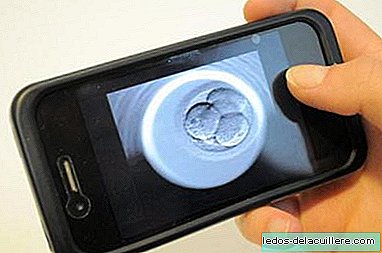
Can you imagine being able to see the formation of cells that will give life to your baby? It looks like science fiction but it's real. an app installed on your mobile or on your computer, you allows to see the fertilization of your child online, a very emotional experience for parents who undergo fertility treatments.
This is possible thanks to a state-of-the-art incubator equipped with a video camera called Embryoscope, a technique that promised to revolutionize the world of in vitro fertilization and has done so. Parents can observe from their own home and at any time of the day how their embryos are developing.
Already it is magical to see the first hours of the human embryo, but if it is also your son, I imagine it has to be shocking and moving. Especially when it comes to couples who have been looking for a baby for a while and have had to resort to in vitro fertilization to fulfill their dream of being parents.
The application, which is a novelty, will be presented in July at the Congress of the European Society of Human Reproduction (ESHRE) in London. It has been developed by the Institut Marquès together with a study conducted with parents who were able to test the application during their fertility treatment.
Through it parents can check the status of embryos from the day of fertilization and before being implanted in the mother's womb. The idea is to make them participants of that moment, give them access and greater control to the processes that happen inside the laboratory and that can see them as the embryologists see them.
According to experts, this helps them establish a first emotional bond with their embryos and reduce uncertainty and anxiety. Some couples say that seeing them how they develop gives them even greater confidence in implantation.
Seeing the early hours of our children's development is an experience to which any parent would be deeply excited. Of course, this is the process prior to implantation, which as you know can later fail, with the consequent frustration that brings. But would you stop doing it if you had the chance? It seemed surprising to me.












